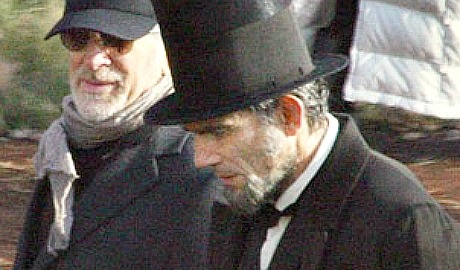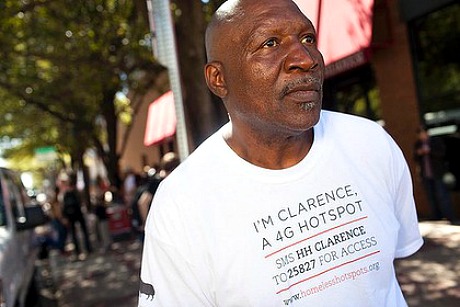The first positive buzz for 21 Jump Street (Sony, 3.16) began to swirl around a month ago, and now we have the 88% positive Rotten Tomatoes response and…okay, the Metacritic guys are only at 68. But when a high-energy goofy spoof thing works, as this one mostly does, you need to ask how much of is due to the sheer rambunctious energy and chemistry aspects and how much is due to actual brain-soul ingredients.

So you need to take two steps back and have a couple of sips of cappucino and look out the window and pet your cat before committing yourself. Take it easy.
A couple of high school guys — one smart and dorky and a social failure (Jonah Hill), the other a broad, hunky smoothie who wasn’t too good with the grades (Channing Tatum) — are now bumbling police recruits without a clue, which is to say inexplicably careless and stupid. That leads…you know what? To hell with the synopsis because this movie is just a lot of misfit elements thrown together like a deck of cards flying all over the place without any real Billy Wilder and I.A.L. Diamond-like thought given to any kind of harmony or undercurrent besides the reversal-of-high-school-fortune thing.
But it works because the vibes are so good that the movie knows it doesn’t need an audience to go along with it. It’s not trying to be funny — it’s funny because it is. And it works because directors Phil Lord and Chris Miller, and cowriters Jonah Hill and Micheal Bacall and the cast convince you that it’s working for them, even though it can be easily picked apart and shown to be deficient. They make the rules and get you to go along.
Much of 21 Jump Street is really silly stuff, and that’s mostly a good thing. (And sometimes not so good in a sloppy way.) My favorite tag line so far comes from a review by Time Out‘s Keith Uhlich: “Abbott and Costello‘s Lethal Weapon.” Warning to audiences: don’t see 21 Jump Street twice. See it once and let it go. Just a feeling.
A lot of comedies are self-regarding wanks, but 21 Jump Street jokes about the fact that it’s joking about itself. It’s two or three layers removed from any semblance of sincerity. And that, oddly, is why it’s enjoyable. The reason it’s engaging (except for the last 25 or 30 minutes) is because you can sense an impish rogue intelligence coming from star and co-writer Jonah Hill, and because Hill’s chemistry with Tatum is loose and agreeable and stupid.
It needs to be clearly understood, however, that 21 Jump Street isn’t epic Superbad-funny because it’s operating out of a genre straightjacket (i.e., ’80s TV reboot, necessary cop tropes, action finale) and can only wiggle around so much.
I only know there was an old-fashioned Times Square-like sign flashing above the screen at the AMC Century City plex, and that it kept saying “this is vaudeville, man…a jape of a jape of a late ’80s TV show…but a clever one that keeps popping, and we know it….pop-poppity-pop-pup…pop-pudalop-pudalop…pop-pup. We know how to do meta slapstick and we were smart enough to weave in a clever little theme about going back to high school and this time getting it right. And the fun of the onetime dorky nerd turning into the mellow hip-cool guy when he returns to high school as an undercover narc, and the other guy…the smooth, swaggering jockster…not doing as well in a p.c. 2012 high school as he did in the early aughts. Like, at all.” All of that and more was flashing left to right on the message screen.
The last half hour devolves into amped-up slapstick and standard car chases and shoot-outs, and of course there’s a cameo appearance by a couple of guys you might know.
Tatum strikes me as being overweight for a young guy in really good shape. He has a massively thick neck (like an fucking ox) and a wide face, and if he doesn’t watch it he’ll turn into Alex Karras or Alan Hale, Jr or Aldo Ray by the time he’s 38 or 40. Get on the right diet now or else.
And Brie Larson…I don’t know what to say. She’s not my idea of hot (she was in Scott Pilgrim) but yes, she’s mildly intriguing in that she conveys values and an inner life of some kind. But if I was in high school and she was in my algebra or ancient history class? I might be friendly with her but I wouldn’t be scheming to go out with her.
21 Jump Street was shot in and around New Orleans, but you’d never know it.


